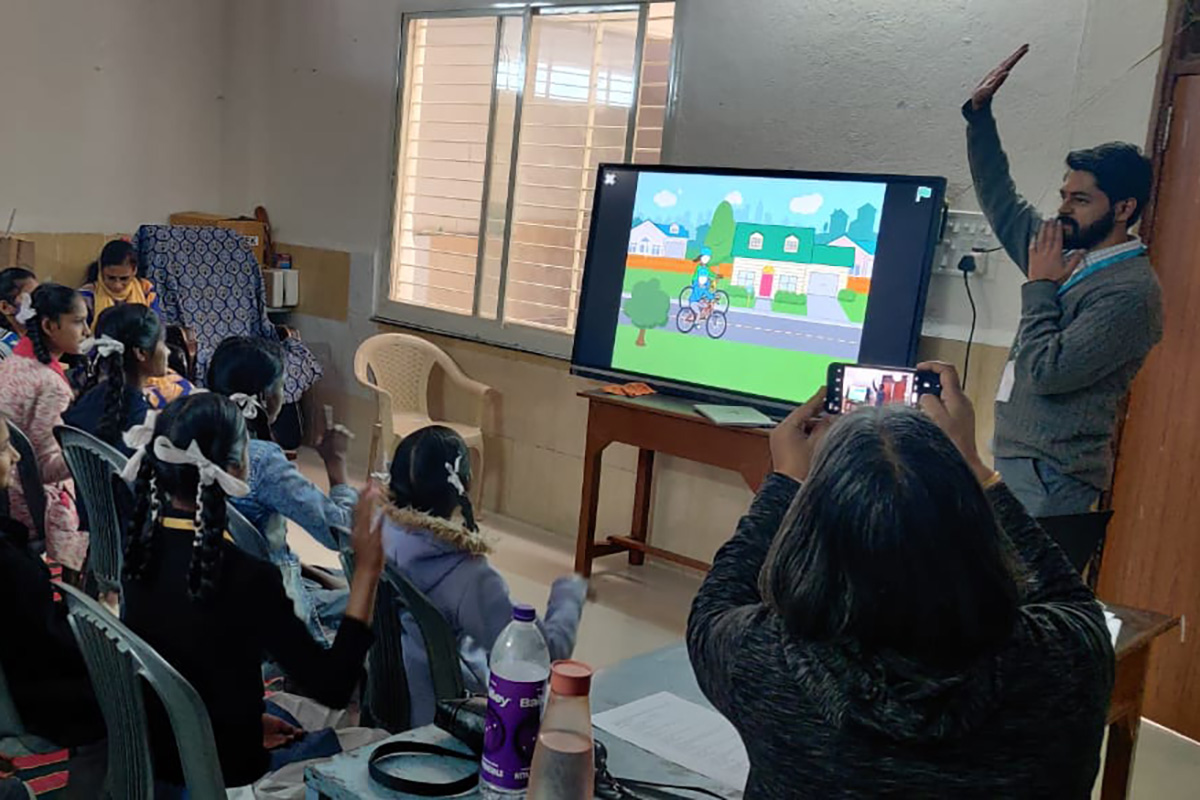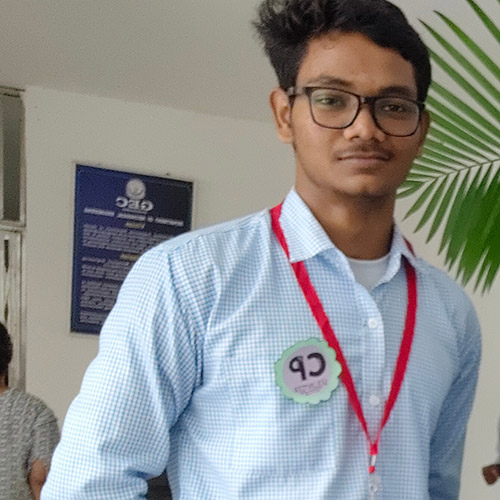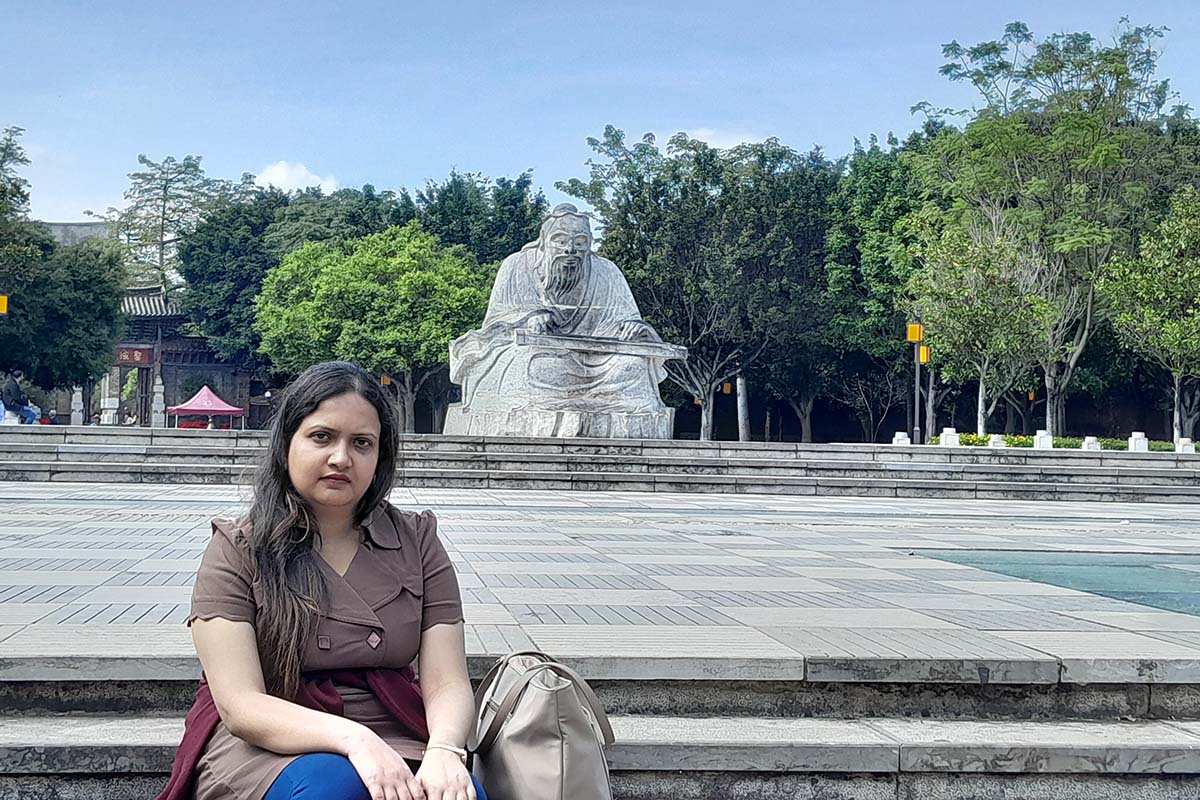Unleashing the Power of Curiosity: Making digital literacy accessible to the children of Madhya Pradesh, India
December 16by Sitaram Nayak
The story begins with a simple question posed to a group of 50 computer teachers: “Tell us 3 areas where we don’t use computers or their technology.” As the minutes ticked by, not a single moment devoid of technology emerged from the discussion. It was a powerful realization that in our daily lives, we are constantly intertwined with computers and technology. Yet, despite this ubiquity, structured computer education remains elusive, particularly in government-run schools.
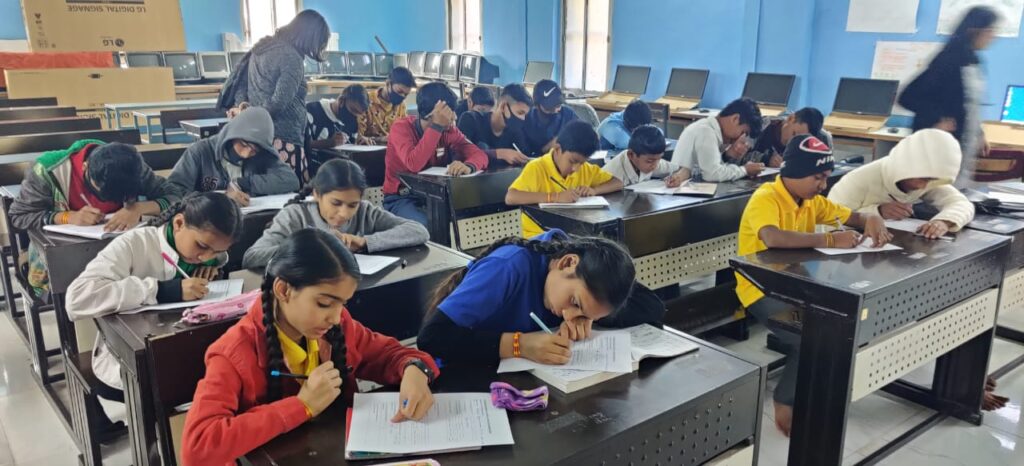
Shubham Singh is a civil engineer who has worked with organizations such as SBI Foundations, Transforming Rural India, and Central Square Foundation to address the problem of classroom learning at scale. His dream is to bridge this gap systematically, ensuring that every child, regardless of their background, receives quality computer education. Collaborating with the School Education Department of Madhya Pradesh, Peepul (an organization he works with) is crafting a structured, contextualized computer science curriculum that can be scaled up for every student in government-run schools.
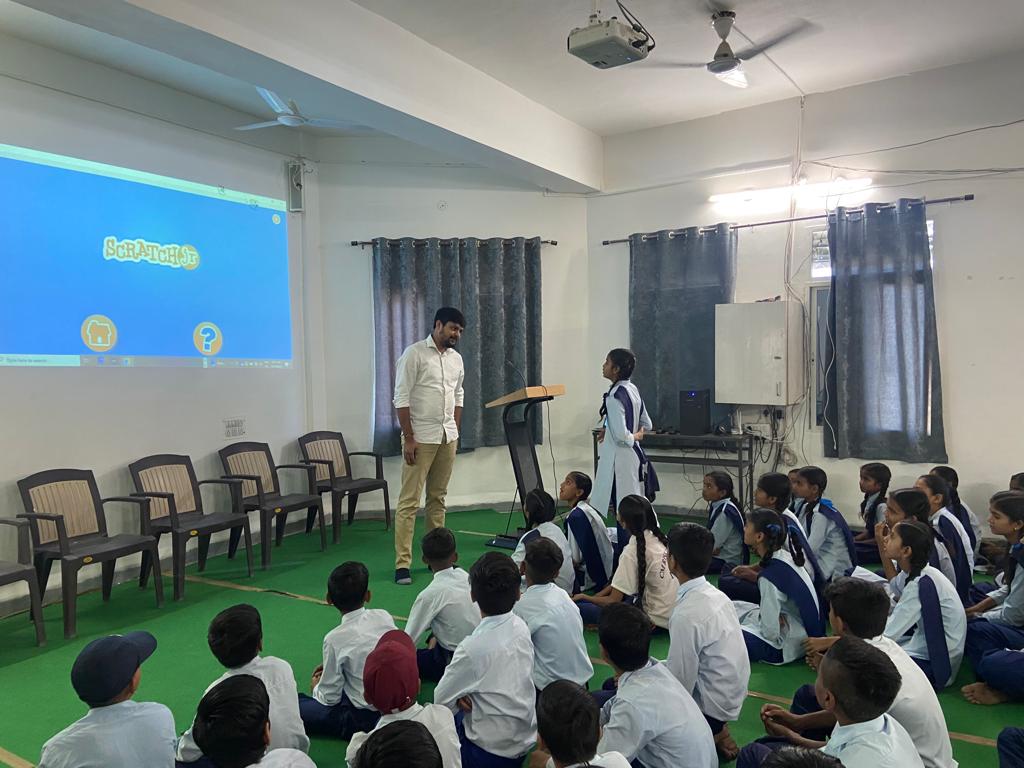
The journey, however, took an unexpected turn when Mr. Shubham Singh and his team at Peepul decided to step away from the traditional approach. Instead of dictating what students should learn, they turned to the real experts – the teachers and the students. The challenge was to understand what these young minds desired to explore in the realm of computers. Engaging in conversations with both teachers and students, we sought to uncover their perspectives. Should computer education start with the basics of hardware, or can it leap into the world of creativity from the get-go? The responses varied, reflecting the diversity of thought among educators and pupils.
The experiment began with a bold move: introducing block-based programming through Scratch Jr., a platform that encourages creative thinking, and problem-solving and develops a fundamental base to learn concepts of coding. Their digital literacy team in M.P., led by Shubham, did explore sessions in a few government schools to test out how much students can learn if they are taught something very new and different. In 12 rural government schools, over 450 students and 25 teachers collectively dived into this novel learning experience. For students who had not learned computers before (~75% of them, as received during the written feedback from students), the initial struggle to move the mouse was real, they could not even move the cursor from one corner to another corner of the screen, but what followed was truly remarkable. In just one hour of the first-time teaching/learning, more than 60% of these students successfully created projects using Scratch Jr. Their enthusiasm soared, proving that learning could be engaging and effective even without prior computer exposure. The team was not content with the mere success of this, but they sought written feedback from the students.
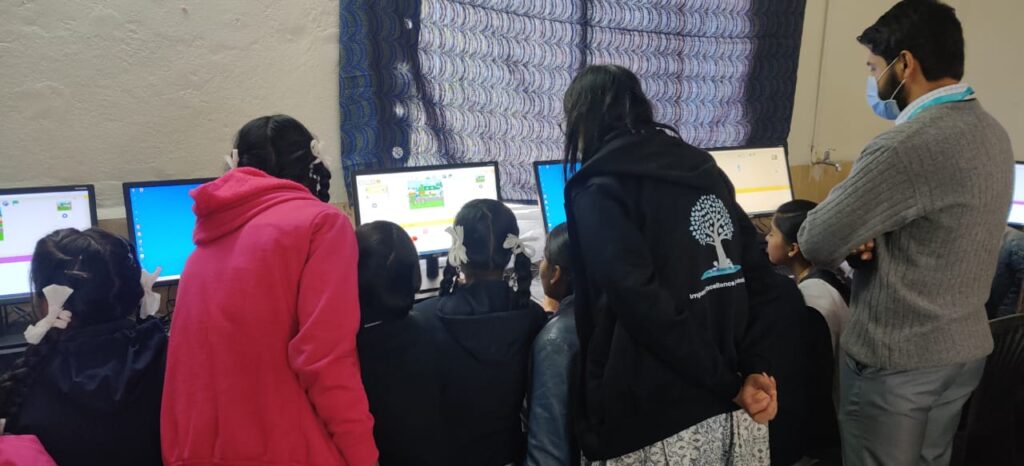
The results were illuminating. Nearly 90% of the students expressed a desire to learn activities like making games, cartoons, and internet searches – a far cry from the traditional curriculum’s focus on hardware basics. The revelation was clear: learning thrives on curiosity, excitement, and eagerness.
As we stand on the brink of the 21st century, where technology is omnipresent, this initiative underscores the urgency of equipping children with the skills to navigate this digital landscape. The journey is ongoing, with their digital literacy team working hand in hand with the School Education Department of Madhya Pradesh to ensure that digital literacy is not just a checkbox but a vibrant, engaging, and productive aspect of every child’s education.
In Madhya Pradesh, the sun isn’t just setting; it’s rising on a new era of education, one fuelled by the spark of curiosity and the promise of a brighter, digitally literate future for all.
